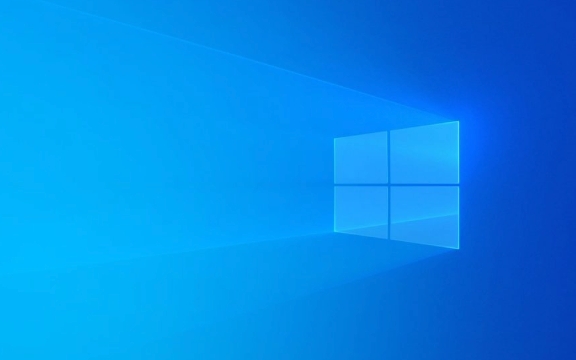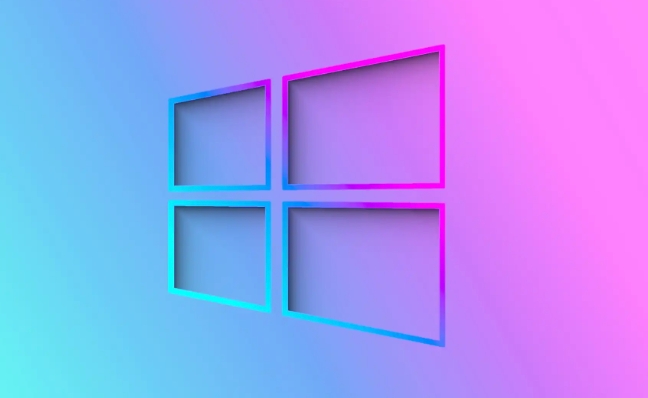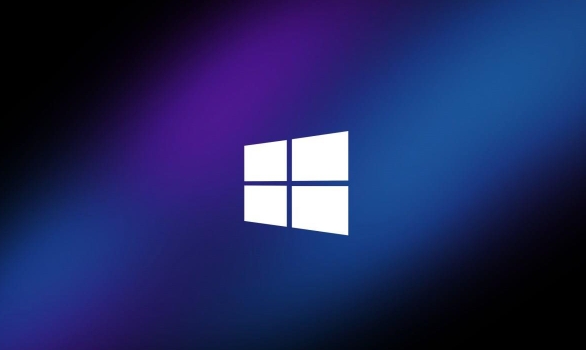How to fix 'This PC can't be upgraded to Windows 11'
Aug 01, 2025 am 06:14 AMIf your PC can't be upgraded to Windows 11, it fails to meet one or more minimum system requirements; use the PC Health Check app or third-party tools like WhyNotWin11 to identify the specific issue. 2. Most commonly, the problem is TPM 2.0 or Secure Boot being disabled, so access BIOS/UEFI settings and enable both features to resolve the issue and proceed with the upgrade.

If you're seeing the message "This PC can't be upgraded to Windows 11", it means your device doesn't meet one or more of Microsoft's minimum system requirements. But don't panic — in many cases, you can still fix or work around the issue. Here’s how to diagnose and resolve it.

? 1. Check Why Your PC Doesn’t Qualify
The first step is to find out which requirement your PC is failing. Microsoft lists several key hardware requirements for Windows 11:
- 64-bit processor with 1 GHz or faster (2 or more cores)
- 4 GB RAM or more
- 64 GB or larger storage
- UEFI firmware with Secure Boot support
- TPM 2.0 (Trusted Platform Module)
- DirectX 12-compatible GPU with WDDM 2.0 driver
- HD display (720p or higher, 9” or larger)
To check compatibility:

- Use PC Health Check app (download from Microsoft).
- Or use third-party tools like WhyNotWin11 or Win11UpgradeCheck.
These tools will tell you exactly what’s missing — most commonly TPM 2.0 or Secure Boot.
? 2. Enable TPM 2.0 and Secure Boot
Even if your PC supports TPM 2.0 and Secure Boot, they might be disabled in BIOS/UEFI.

How to enable them:
- Restart your PC and press the BIOS key (usually F2, F10, DEL, or ESC) during boot.
- Navigate to Security, Advanced, or System Configuration.
- Look for:
- TPM / Security Device / PTT (Intel Platform Trust Technology)
- Secure Boot
- Enable both (if available).
- Save and exit.
? On many Intel-based systems, TPM 2.0 is called Intel PTT. On AMD, it’s often AMD fTPM. Make sure it's set to Enabled and TPM 2.0, not 1.2.
After enabling, re-run the Windows 11 compatibility check.
?? 3. Ensure UEFI and GPT Disk Mode
Windows 11 requires:
- UEFI boot mode (not Legacy BIOS)
- GPT partition style (not MBR)
To check:
- Press Win R, type
msinfo32, and press Enter. - Look for:
- BIOS Mode: Should say UEFI
- Disk Partition Style: Should say GPT
If it shows Legacy or MBR, you’ll need to convert.
?? Converting from MBR to GPT or Legacy to UEFI may require reinstalling Windows unless you use tools like MBR2GPT (available in Windows 10 1903 ).
To convert safely:
- Open Command Prompt as admin.
- Run:
mbr2gpt /validate /disk:0
If valid, then:
mbr2gpt /convert /disk:0
- Then enable UEFI in BIOS.
? 4. Upgrade or Bypass (If Hardware Is Close)
If your PC is almost compatible (e.g., has TPM 1.2 instead of 2.0), you might still upgrade — but not officially supported.
Option A: Registry Bypass (Not Recommended Long-Term)
Microsoft allows some bypasses during upgrade, but they may break future updates.
You can edit the registry to skip checks:
- During setup, when blocked, press Shift F10 to open Command Prompt.
- Type
regedit - Go to:
HKEY_LOCAL_MACHINE\SYSTEM\Setup - Create a new key: LabConfig
- Inside it, create these DWORD (32-bit) values:
-
BypassTPMCheck= 1 -
BypassSecureBootCheck= 1 -
BypassRAMCheck= 1 -
BypassStorageCheck= 1 -
BypassCPUCheck= 1
-
- Close Registry Editor and go back to setup — it should now proceed.
?? This works for clean installs only and may cause instability or prevent future updates.
Option B: Clean Install Using ISO
Download the Windows 11 ISO from Microsoft.
- Create a bootable USB (using Rufus or Media Creation Tool).
- Boot from USB and install.
- Use the registry bypass trick above if blocked.
This method skips the in-place upgrade check.
? 5. When You Can’t Fix It
Some older PCs (especially from before 2018) simply don’t support required features like TPM 2.0 or UEFI.
In that case:
- Stick with Windows 10 (supported until October 2025)
- Consider Linux if you need a modern OS on old hardware
- Upgrade your hardware (e.g., new PC or SSD compatible motherboard)
Summary: What to Try First
- ? Run PC Health Check to see the exact issue
- ? Enable TPM 2.0 and Secure Boot in BIOS
- ? Confirm UEFI mode and GPT disk
- ? Try a clean install with bypass if necessary
- ? Accept that some PCs just aren’t meant for Windows 11
Most "unupgradable" PCs can be fixed with BIOS tweaks — especially enabling TPM and Secure Boot. If your hardware is too old, staying on Windows 10 is still safe and practical for now.
The above is the detailed content of How to fix 'This PC can't be upgraded to Windows 11'. For more information, please follow other related articles on the PHP Chinese website!

Hot AI Tools

Undress AI Tool
Undress images for free

Undresser.AI Undress
AI-powered app for creating realistic nude photos

AI Clothes Remover
Online AI tool for removing clothes from photos.

Clothoff.io
AI clothes remover

Video Face Swap
Swap faces in any video effortlessly with our completely free AI face swap tool!

Hot Article

Hot Tools

Notepad++7.3.1
Easy-to-use and free code editor

SublimeText3 Chinese version
Chinese version, very easy to use

Zend Studio 13.0.1
Powerful PHP integrated development environment

Dreamweaver CS6
Visual web development tools

SublimeText3 Mac version
God-level code editing software (SublimeText3)

Hot Topics
 Windows 11 slow boot time fix
Jul 04, 2025 am 02:04 AM
Windows 11 slow boot time fix
Jul 04, 2025 am 02:04 AM
The problem of slow booting can be solved by the following methods: 1. Check and disable unnecessary booting programs; 2. Turn off the quick boot function; 3. Update the driver and check disk health; 4. Adjust the number of processor cores (only for advanced users). For Windows 11 systems, first, the default self-start software such as QQ and WeChat are disabled through the task manager to improve the startup speed; if you use dual systems or old hardware, you can enter the power option to turn off the quick boot function; second, use the device manager to update the driver and run the chkdsk command to fix disk errors, and it is recommended to replace the mechanical hard disk with SSD; for multi-core CPU users, the kernel parameters can be adjusted through bcdedit and msconfig to optimize the startup efficiency. Most cases can be corrected by basic investigation
 How to Change Font Color on Desktop Icons (Windows 11)
Jul 07, 2025 pm 12:07 PM
How to Change Font Color on Desktop Icons (Windows 11)
Jul 07, 2025 pm 12:07 PM
If you're having trouble reading your desktop icons' text or simply want to personalize your desktop look, you may be looking for a way to change the font color on desktop icons in Windows 11. Unfortunately, Windows 11 doesn't offer an easy built-in
 Fixed Windows 11 Google Chrome not opening
Jul 08, 2025 pm 02:36 PM
Fixed Windows 11 Google Chrome not opening
Jul 08, 2025 pm 02:36 PM
Fixed Windows 11 Google Chrome not opening Google Chrome is the most popular browser right now, but even it sometimes requires help to open on Windows. Then follow the on-screen instructions to complete the process. After completing the above steps, launch Google Chrome again to see if it works properly now. 5. Delete Chrome User Profile If you are still having problems, it may be time to delete Chrome User Profile. This will delete all your personal information, so be sure to back up all relevant data. Typically, you delete the Chrome user profile through the browser itself. But given that you can't open it, here's another way: Turn on Windo
 How to fix second monitor not detected in Windows?
Jul 12, 2025 am 02:27 AM
How to fix second monitor not detected in Windows?
Jul 12, 2025 am 02:27 AM
When Windows cannot detect a second monitor, first check whether the physical connection is normal, including power supply, cable plug-in and interface compatibility, and try to replace the cable or adapter; secondly, update or reinstall the graphics card driver through the Device Manager, and roll back the driver version if necessary; then manually click "Detection" in the display settings to identify the monitor to confirm whether it is correctly identified by the system; finally check whether the monitor input source is switched to the corresponding interface, and confirm whether the graphics card output port connected to the cable is correct. Following the above steps to check in turn, most dual-screen recognition problems can usually be solved.
 Fixed the failure to upload files in Windows Google Chrome
Jul 08, 2025 pm 02:33 PM
Fixed the failure to upload files in Windows Google Chrome
Jul 08, 2025 pm 02:33 PM
Have problems uploading files in Google Chrome? This may be annoying, right? Whether you are attaching documents to emails, sharing images on social media, or submitting important files for work or school, a smooth file upload process is crucial. So, it can be frustrating if your file uploads continue to fail in Chrome on Windows PC. If you're not ready to give up your favorite browser, here are some tips for fixes that can't upload files on Windows Google Chrome 1. Start with Universal Repair Before we learn about any advanced troubleshooting tips, it's best to try some of the basic solutions mentioned below. Troubleshooting Internet connection issues: Internet connection
 Want to Build an Everyday Work Desktop? Get a Mini PC Instead
Jul 08, 2025 am 06:03 AM
Want to Build an Everyday Work Desktop? Get a Mini PC Instead
Jul 08, 2025 am 06:03 AM
Mini PCs have undergone
 Is the latest Windows update safe to install
Jul 02, 2025 am 01:04 AM
Is the latest Windows update safe to install
Jul 02, 2025 am 01:04 AM
Microsoft's latest Windows updates can generally be installed safely, but they need to be judged based on the update type and usage scenario. Ordinary users can update their daily office work, video watching, etc. directly; professional software or game users should be cautious. Regular quality updates (such as the monthly "Tuesday Patch") have low risks, so it is recommended to install them in time; updates to functions (such as large version upgrades) may cause compatibility issues. It is recommended to back up data, confirm software and hardware support, and check community feedback before installing. Overall, quality updates are safe and reliable, and functional updates are suitable for optional installation after observation.







